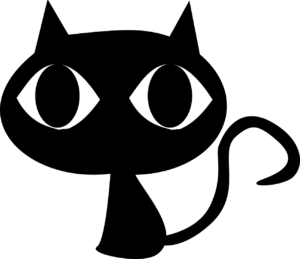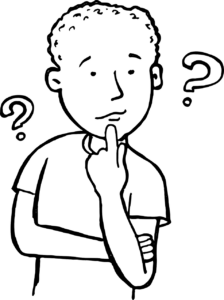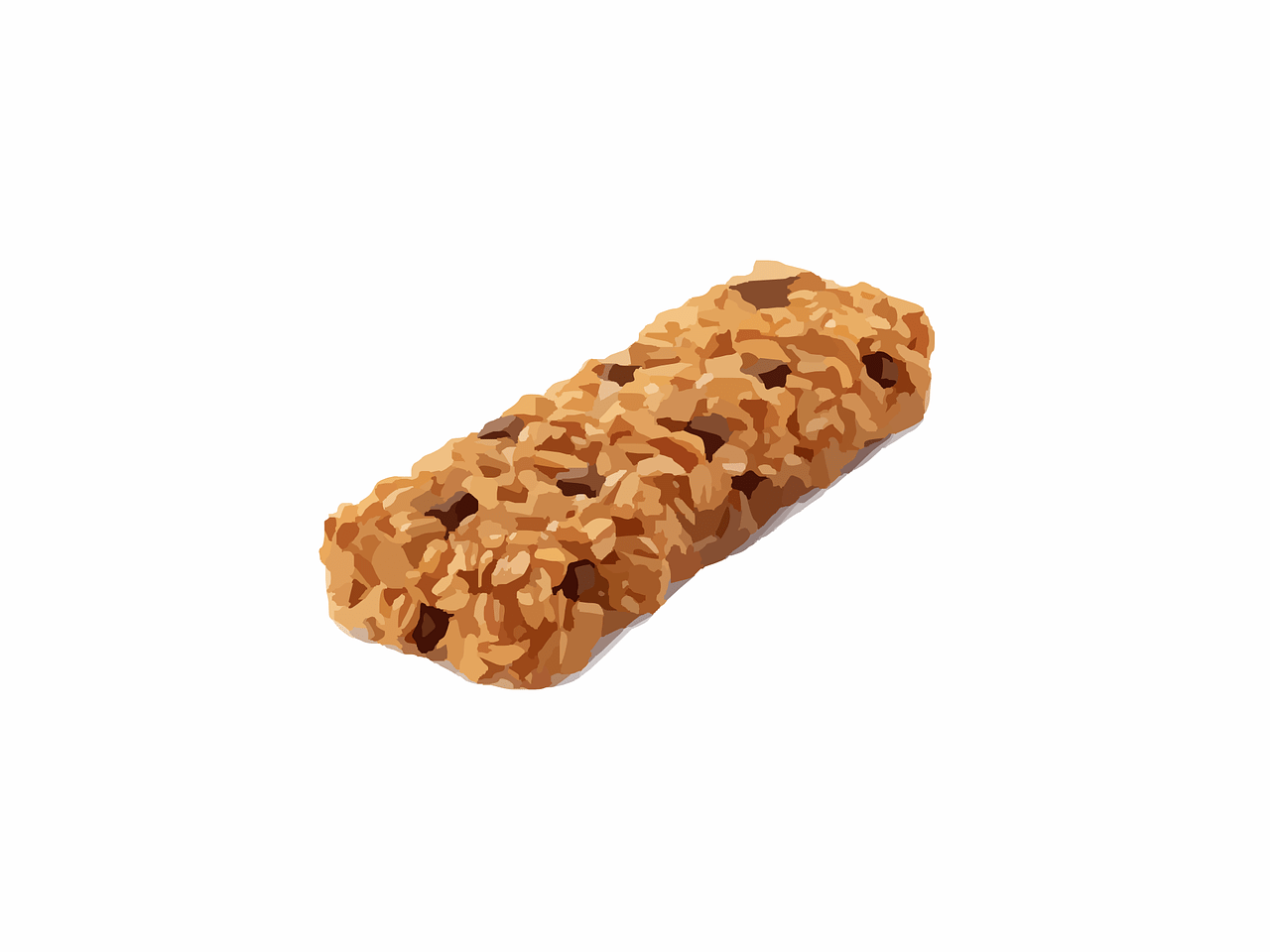Tag: Fiona Clarke ’23
Born To Be Middle-Aged
by Fiona Clarke '23 on December 6, 2022
Portfolio Staff
Creative Non-Fiction

I have forgiven but not forgotten the senior who, a few weeks ago, asked me what grade I was in, in a tone clearly indicating her conviction that I must be at least two grades below her. With prayers, I smothered my immediate impulse to make a face like a sleep paralysis hag and bellow, “DO I LOOK SO YOUNG NOW?” Instead, like one of Jane Austen’s more polite heroines, I attempted to answer her as sweetly and blandly as possible, and life went on. But I have not forgotten.
I don’t know whether it’s that I have a baby face or that I act like a bug-eyed idiot fresh out of the juvenile hall or both, but whatever the reason, much to my chagrin and confusion, it’s been a recurring theme of my penultimate semester at Providence College that I should be mistaken for being younger than I am. I’ve been informed that I should be flattered when this happens, but I have not yet managed to be. I was even informed by some ghoul who, like my roommate, had clearly been watching a lot of Law and Order: SVU that I should be “extra happy” if people think I’m younger than I am because of how highly youth is valued in women. But after all, as the old man on the porch says in It’s a Wonderful Life, “Youth is wasted on the wrong people!” Maybe I’ll be flattered if, in five or ten years, my age is still underestimated, but here and now I still think wistfully of the one gray hair I found a few years ago and fondly anticipate being middle-aged.
Happily, there’s some evidence that I was born for middle age, or at least for what I imagine middle age to be. I’ve always been behind by months or years on pop culture and am unlikely to catch up soon; I don’t really check the internet—a phrase my much savvier younger sister has informed me is “weird” (“You don’t ‘check the internet’ like you check your email!”). I don’t know what’s on the New York Times bestseller list, but I do know what books I’m going to give my children to read. I recently spent the weekend fixing a table I found on the side of the road—we’re talking sanding, stripping paint, sanding again, staining, and staining again. Today I think maybe I’ll hang up a picture or two. It’s the high life for me and my baby face.
I Can’t Stop Thinking About Gorillas
by Fiona Clarke '23 on October 20, 2022
Portfolio Staff
Halloween

I’ve never been afraid of the Mafia, but when my parents were informed that the house that they were on the verge of buying was a Mafia safe house, I was thrilled. Even after someone explained to me that it was a safe house for the Mafia, not a safe house from the Mafia, I remained convinced that we’d be safer there than anywhere else in New England. Better the Mafia you know than the Mafia you don’t, I thought. My parents were not so sure, so we moved to a tiny Massachusetts town where our greatest causes for concern are that the garbage disposal company is in cahoots with the Irish mob and that mysterious trucks from a swimming pool company roar ominously down our dead-end country road several times a day.
A few years prior on the other side of the country, we almost moved into the house whose exterior was used for the Palmer House in the 1990s series Twin Peaks. As if this weren’t exciting enough, the town was also home to four prisons. At the age of ten, I didn’t quite get why this caused my mother so much worry. Growing up, I spent hours imagining how I would escape prison, devising schemes wilder than the Count of Monte Cristo’s. I was often a captive soldier in my brothers’ war games, or one of Robin Hood’s men imprisoned by the Sheriff of Nottingham, or a hobbit in the hands of trolls and Orcs, or an Elizabethan Catholic hiding from the Anglicans. The toy towns my siblings and I constructed invariably included a church, a saloon, and a lockup that would have made Guantanamo look like a gingerbread house. If I ended up in prison, I thought, I’d be out before long. It was a few years before I realized that my mother’s fear was not that her children would end up on the inside, but that someone else would end up on the outside. (Let it be noted that I still think I could escape from prison. Easily.)
I once tried to make a list of my own fears—and what was on that list, you ask? Let it suffice to say that if I had been roaming the earth when God sent the mighty rains, I would have taken my chances with the flood rather than set foot on Noah’s Ark. My childhood nightmares were filled with coyotes, bears, whales, bats, owls, snakes, panthers, and, above all, gorillas. The horror of gorillas runs in the family. My brother, two years older than me, would wander into a sibling’s or parents’ room in the middle of the night, and, greeted by either loving concern or an exasperated “What-the-hell-are-you-doing-go-back-to-bed-or-I’ll-give-you-something-to-be-afraid-of”, he would say, plaintively: “I can’t stop thinking about gorillas.” I don’t know what he was thinking about, but my own intrusive, primate thoughts almost always involved being taken captive and kept in the jungle. I was sure I could escape from a maximum-security prison, but I had no hope of escaping from a gorilla.
I’ve often wondered if my brother’s and my shared fear of gorillas had anything to do with the three gorilla statues in a neighbor’s yard, or with the Kix-like cereal called Gorilla Munch. But I loved the gorilla statues. They were a neighborhood spectacle. They weren’t just any gorillas; their owners dressed them up. Taking a family walk to see them was a treat, not a punishment. The gorilla on the box of Gorilla Munch, though, still gives me the creeps. He stares me down and looks like he’s going to leap off the box and pummel me, or, worse, pick me up, toss me over his shoulder, carry me off to his tree in the jungle, and peel me like a banana. But am I afraid of the Munch Gorilla because I’m afraid of gorillas, or am I afraid of gorillas because of the Munch Gorilla? As one of my Civ professors used to say at the end of his lectures: “Anyway, things to think about…”
Icebreakers
by Fiona Clarke '23 on September 26, 2022
Portfolio Staff
Creative Non-Fiction

“We played icebreakers—yes, hell had frozen over.”
What my sister once brilliantly said in eight words, I am about to say much more clumsily in five hundred. I’ve been around the PC block a few times, three to be exact, and I consider myself an icebreaker survivor. I’ve been on countless “speed dates,” all of which were chaperoned by student leaders sweating buckets over the shoulders of people who didn’t seem to be hitting it off, and none of which were followed by second dates (so sad). I’ve identified myself as every kind of kitchen utensil known to Gordon Ramsay. I’ve invented so many handshakes that as the sign of peace approaches during Mass, I am simply beside myself, terrified that the touch of a hand innocently outstretched in Christian charity will set me off, that while I squeeze with my right, I might slap with my left.
I’ve also had more than enough opportunities to observe that every time an icebreaker shows its ugly face, an almost identical pattern of behavior immediately unfolds. “Icebreakers are the worst!”—the cry goes up from the very agents of angst. “But they’re necessary!”—those same voices argue back, and then cheerfully begin to poke and prod the unfortunate participants into their pairs and lines and circles. It’s cool to hate icebreakers. So cool, in fact, that those who mandate and implement them also hate them, or at least pretend to. It’s cool to hate icebreakers, and yet, especially in college, or at least at Providence College, you’re lucky to go a week without getting tied into a human knot. But the fact that there even exists, outside of horror movies, something called “the human knot” should send a horde of little chills scurrying up, down, and all around the spine of anyone who has two grains of common sense to knock together. I’m not sure exactly what it means for our social clime that our best attempt to connect with other people looks like interlocking the clammy crooks of our elbows into other clammy crooks and making one writhing, giggling bundle of joints, like a living Hieronymous Bosch painting. I do know it means nothing good.
There is, as always, a possibility that I’m violently overreacting. “It’s just a game!” the cry goes up. “Relax! Have fun! Don’t take it so seriously!” But I am more than willing to die a bloody death on this hill. This fall I led a pre-orientation program for the Class of 2026 and witnessed a new generation of young adults getting the ice hacked off of them with the same rusty hatchets that were used on me at the beginning of my freshman year. Han Solo frozen in carbonite is about as cold and miserable as I am during icebreakers, but it’s almost worse to watch other people in the same situation. There has to be a way to get people talking and enjoying each other’s company without making them stand in a circle and yell ZIP ZOOP ZEEP at each other—and it’s not that I enjoy knowing no one to talk to, having nothing to do, nowhere to stand, nowhere to run to, baby, nowhere to hide. But my problem remains: it’s a mystery to me why, as eighteen-, nineteen-, twenty-, twenty-one-, and twenty-two-year-olds we are still engaging in activities with names like “Move Your Butt.” And, worse and worse, it doesn’t seem like it gets better after college. To jog my own memory (read: fish out whatever ghastly icebreaker experiences I have banished to the murky depths of my mind), I did a quick google search of the word “icebreakers” and found that the second result is “50 Icebreaker Games for the Workplace in 2022.” God help us, everyone.
Curiosity and The Family Cat
by Fiona Clarke '23 on September 8, 2022
Portfolio Staff
Poetry

At home you and I make the coffee without caffeine,
For the heart murmurers who gather in another room,
While jostling predispositions in hallways wait their turns to be heard.
We save the coffee grounds and the broken eggshells
For the soil of the vines and bleeding-hearts and thyme
That make clear our hearts and lungs and fill our eyes
With loss-impossible oxygen.
And so, surreal and serious, I smoke no more, and speak much less,
And yet these days, I take comfort
When I hear the rain fall like knuckles cracking,
And I look up to a sky that has grit its teeth,
Prepared to rain its blows upon me,
But cracks a love-worn smile.
And all dear and delirious, we dare to lay it bare:
“O brother, where art thou bleeding from?”
“A horizontal smile and a vertical touch—”
“Son, my children are gathering precious stones and metals,
And getting blood and dirt on their hands—”
“Daughter, I am fool’s proof and wise man’s wonderings—”
Say that the house is half empty—your son has died.
Say that the house is half full—
Christ is going up to heaven.
Statements of Fact and Trying Not to Look Stupid
by trogers5 on April 8, 2022
Creative Non-Fiction

Fiona Clarke ’23
Welcome back to “Stupid Things People Say.” This week, our topic is “Living in the State of the Obvious (And Why You Should Immigrate).”
A few years ago, I was minding my own business at soccer practice, surrounded by a gaggle of chirping teenage girls, waiting in line for my turn to take a shot on the goal and watching in great dejection as my teammates continually missed the ball with their lumbering feet. My contemplation of fallen women was interrupted by the girl in front of me turning around and looking me dead in the eye for several seconds. Just as I began to break out in a cold sweat, this bright bulb said: “You have very blue eyes,” and turned back around. I was relieved that she had not started speaking in tongues, or cast some sort of hex on me, but I was also flummoxed. It was neither a compliment for which I could express gratitude nor an insult to which I could deliver a scathing comeback (read: gibber silently in rage). It was a statement of fact that opened up no avenue for conversation. I have no idea what I said in response, if I said anything at all other than “Oh.” With that characteristic raw honesty, I might have said “Yes, I know.” I might have feigned sweet ignorance and said, “Oh, really?” I have no idea.
I am well aware that I have blue eyes. I should be at this point; enough people have told me so by now. Yet I feel that I have never offered a suitable response to this sort of statement of fact. I wish I had the nerve to immediately point out the idiocy of whatever remark just dribbled into my ears and took up valuable space in my brain. I wish I had the grace to do so gently, and I wish I had the smarts to do so intelligibly on the spot. But in the moment, when someone tells me, as if he were proclaiming the terrible descent of the Lord in fire and hail, with all the strut and vigor of one garbed in camel hair, reeking of honey, crunching locusts beneath his feet, that I have blue eyes, all I can muster is a small sputtering wheeze and a foolish stretch of the jaw in sad mimicry of a grin. Now I’m the one who looks like an idiot. That’s just not fair. It’s just not right. If only people would stop telling me things I already know, I would look so much smarter all the time.
Goodwill
by trogers5 on March 27, 2022
Poetry

Fiona Clarke ’23
At Goodwill, a good find:
A second, or third, or fourth-hand lamp.
(“Where are you going to put that?”
“I don’t know, but I’ll find a place.”)
And so it was:
An old light in a new shape,
A new light in an old place.
So it was, was it not?
I once let out a cry, and asked that I be put under the ether,
Not wanting you to pay for it—
(“Pay for what?”
“I don’t know.”)
But I woke up, and I wised up, and I walked side by side with you,
’Til we stood on a new crack in the old road.
You put a quarter in the parking meter,
And said: “This will only take a minute,”
But we take no time; it falls through our fingers
And taps our shoulders as it passes us by.
A good find, this new lamp,
And where am I going to put this light?
It will make its place for itself,
This light that sinks and always rises,
With weight that grounds and still surprises,
Pours like wine upon me, and colors those empty spaces,
Quenches a thirst and reveals a greater hunger,
A light besides which other lights resemble bruises,
and, shining on those wounds, binds them up.
I once let out a cry: “Where am I going to put this lamp?”
But this crazed corkscrew light that is within me and about me
has made its place for itself.
Beer Ye, Beer Ye
by The Cowl Editor on February 11, 2022
Creative Non-Fiction
by Fiona Clarke ’23
I am having doubts about feminism.
My concern is that when women rise to power, beer will lose its place in our society. One of the saddest realizations I have had in my time at Providence College is that most girls don’t like beer. I suppose I should offer a disclaimer that I have done no research on this topic. Anything I say here is based entirely on my own personal experience and on my own observations, etc., etc., etc., and I solemnly swear that I will not attempt to draw conclusions about girls in general, etc., etc., etc. It’s funny, though, that I only seem to run into girls who don’t like beer. I can count on one hand the number of girls I’ve met who like beer. All I can say is, the rest of you all are missing out.
This is not to invoke the old chestnut, “I’m not like other girls.” It’s a damn shame for anyone to not like beer, but I’ve met so many girls who don’t like beer that I’m beginning to get worried for the rest of my gender. I come from a long line, both of blood and faith, of beer-drinking women. (“Beer-Drinking Women”: either a really bad country song or a really good country song waiting to happen.) St. Brigid of Ireland liked beer so much she put it in a prayer: “I wish I had a great lake of beer for the King of kings, and the family of heaven to drink it through time eternal.” (Sip on that for a while.) My mom, sisters, aunt, and sister-in-law love beer. My niece is only three, but I have no doubt that she too will one day love beer—probably when she’s four.
I must admit that I just don’t get it. The criticisms I’ve heard so far include: “It has a lot of calories!” to which I say, yes, and those are what you live on; “It’s bread juice!” which sounds an awful lot like a compliment; and “It’s bitter!”—I can’t argue you out of that one, but maybe I can shame you out of it by gently intimating that you have the taste buds of a five-year-old. I don’t know precisely what the drinks of choice are for those who don’t like beer, but my impression is that they tend to be heavy on vodka, sickly sweet, and taste and smell like cough medicine. Come to think of it, there seems to be a trend of alcohol cleverly disguised as things you might find in the bathroom cupboard or in the kitchen when you’re sick—hard seltzer, Jell-O shots, spiked Gatorade…What’s next, hard ibuprofen? Pish posh, please.
But all this hard work is making me thirsty. Time for some juice.
What a Piece of Work is Man
by The Cowl Editor on November 19, 2021
Creative Non-Fiction

by Fiona Clarke ’23
In the summer of 2011, as our house in Michigan was compressed into cardboard boxes and plastic bins, sorted and taped and stacked and chucked into a truck, my sister and I, with great care, selected and packed up a box of our favorite movies to keep with us while we floated from rental house to rental house across the state of Washington. By Christmas of 2011, my sister and I had watched every movie in this box countless times and could—still can and still do—recite huge chunks of them to each other. Doubtlessly, this was often to the chagrin of the rest of our family, who, simply by saying one single word, might elicit a performance of an entire scene from The Scarlet Pimpernel or Muppets from Space. Our selection included a movie about a would-be criminal mastermind-superhero with a giant blue head: Megamind. This movie is great for several reasons, including a British-accented Will Ferrell’s unironic mispronunciations of common words—“revenge” as “re-vonge,” “spider” as “spee-yider,” and, best of all, “melancholy” as “melONcholy.” It’s an undeniably funny movie, but one of the reasons that it’s also so great is encapsulated in Megamind’s cry of despair about three-quarters of the way through: “I’m the bad guy! I don’t save the day, I don’t fly off into the sunset, and I don’t get the girl!” Man, I love it when I stumble across something that leads me right into a pet peeve. Much of Megamind’s problem is that from the extraterrestrial equivalent to childhood on, he has locked himself into being The Bad Guy. And so, my peeve is self-objectification. I’m not talking about sexual objectification. It’s possible to make yourself an object in another way, and I’m talking about making yourself an object for others’ comprehension or categorization. Self-awareness is a prickly bastard. Taken too far, it becomes the opposite of itself, because you stop living in your own life. You live your own life as if you were looking at yourself. You’re more aware of how someone else sees you or understands you than you’re aware of yourself. Now, for much of the movie, Megamind is actually The Bad Guy, kidnapping, murdering, looting, etc. But he likes being The Bad Guy. He does these things because he likes his Bad Guy identity. It’s compact, crisp, lightly flavored, and easily digestible, like a granola bar.
But no person is a granola bar. Megamind’s “I’m the bad guy” is rooted in the same fear or sense of being misunderstood or misjudged as a classmate’s “I’m a nerd!” or “I’m an introvert!” Sure, these are at least neutral traits; what does it really matter if you’re a nerd or an introvert? Bad guys are bad guys, murderers are murderers, and on a scale of irritating to moral outrage-worthy, “I’m a nerd” and “I’m an introvert” fall pretty near the “irritating” end, but still, the principle is the same. How can you expect someone to understand you if you don’t make it easy for them? Wrong question. For crying out loud, worry less about someone understanding you and worry more about doing whatever the heck it is you need to do to get through the stupid day. All these little teabag-tag descriptions are revoltingly generic. There are lots of flavors of nerd, so which one are you? Why the heck are you shoving yourself into one little word? Do we really have such tiny attention spans, and such low expectations of others’ attention spans, that we’ll settle for a generic tag so as not to have to demand or express too much? Maybe this is something originating in or exacerbated by social media or consumer culture in some way—heck, I’m no doctor. I may well be entirely unqualified to say anything about anything at all. (But isn’t that why they’ve got me writing for a student newspaper?) These observations might well be the approaching deadline-induced remarks of a curmudgeonly snob. (There, I’m guilty of the sin I have just been denouncing.) As if it weren’t surreal enough that bell-bottom jeans are everywhere (a topic for another rant), we’re getting back to cliques and camps and clans and clubs based on self-identified characteristics. Someone might tell me: “You’ll like X. She’s a writer.” And the answer is no. I will not like X because she’s a writer. I will like X if I like X. A person is not a Muppet-man cobbled together from definable distinct personality traits. A person is more than the sum of his or her parts, more than the largest or most obvious part of himself or herself. For the love of all things holy, leave yourself a little mystery.
The Bulldog of Bergen
by The Cowl Editor on November 4, 2021
Poetry

by Fiona Clarke ’23
On adumbrate days, I am the Bulldog of Bergen,
And in real time I untangle the long and short
Of it, the empty light and heavy weather,
The sprints and standstills and downs and outs.
Me and my ill-begotten dream—
We go hand in hand down these irregular streets,
Hand and hand, hand in hand, so that
The orange peel tendons that cling to my fingers
Will catch and stretch on yours.
You caught me trying to press a footprint
Into the hardened concrete,
And told me how to tell time by the trees growing up through the sidewalk.
Now I am walking perpendicular to a wearing wind,
And my thoughts laugh with you.
Time and memory have always served me well,
And I have tried to serve them also,
Anticipating, approximating, the light and long
Of it, the wild horses and slowed-down wrestlers,
And the dark that contains the stars.
I will be satisfied if you would only tell me what you mean.
What do you mean by fumbling with the keys in the rumbling dark?
By saying “yes” to nothing out of nowhere?
What do you mean by being no one else?
By being absent in all others?
When I see you are not there,
You are only there all the more.
I have sat at the feet of time and memory,
With open ears and a shut-up heart.
I must have served them well, for now see my reward:
One who marks the tempest with a steadier heart rate,
One who calls off the dogs, and looks out at the oceans,
One who turns a shoulder, who turns a shoulder again,
One with sharper eyes for the drop and lift and push and pull—
You, a counterbalance.
By the Rivers of Babylon
by The Cowl Editor on October 21, 2021
Poetry

by Fiona Clarke ’23
The burning sun runs its blazing hands along the wildcat,
The ocean, upsets it, and offers a remedy then.
Take and dissolve beneath your tongue—How often?—
As often as you need—For how long?—
Until you, yourself, dissolve.
How can there still be water?
For crying out loud there is a cure,
But for silent mortal flesh, there is only a pillar of cloud before me
And a pillar of salt behind me,
And a gryphon in the bed beside me.
Oh, no doubt, one of the damnable Irish men behind me,
Who saved up all his laughter for his last day,
And his tears for its either-night—
No doubt he can explain this well.
And listen, for in answer to my shoddy prayers,
A knock-off Solomon speaks, and
Out of the mouths of the depraved, beloved,
Ramshackle sense shall come forth.
I will ask you, then
“Were you in the swim last night?”
I could have sworn I saw you balanced on one hand
On the banks of the river, and on the ties of the railroad—
But then, love and a hole in the earth
Sometimes run all together.
Today I stand transfixed where the orange trees grew,
For when I went outside to look at the stars,
I saw a cleft in the chin of the earth
That I had not seen before,
And I saw the rain pouring out its heart
Where I used to pour out mine like water,
And now the sea is full.
Today I stand transfixed where the orange trees grew,
And look and see: every surface is
One face shifting into another.
